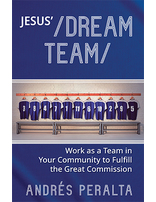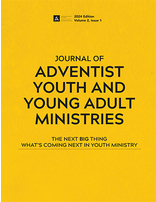 Answer: Yes, hell exists, but I’m not sure what you mean by “hell,” or what you think the parable of the rich man and Lazarus teaches about hell.
Answer: Yes, hell exists, but I’m not sure what you mean by “hell,” or what you think the parable of the rich man and Lazarus teaches about hell.The parable about the rich man and Lazarus is found only in Luke 16:19-31. Here’s how it reads from the New Living Translation: “Jesus said, ‘There was a certain rich man who was splendidly clothed and who lived each day in luxury. At his door lay a diseased beggar named Lazarus. As Lazarus lay there longing for scraps from the rich man’s table, the dogs would come and lick his open sores. Finally, the beggar died and was carried by the angels to be with Abraham [in Greek it means Abraham’s bosom]. The rich man also died and was buried, and his soul went to the place of the dead [in Greek it means hades]. There, in torment, he saw Lazarus in the far distance with Abraham.
“The rich man shouted, ‘Father Abraham, have some pity! Send Lazarus over here to dip the tip of his finger in water and cool my tongue, because I am in anguish in these flames.’
“But Abraham said to him, ‘Son, remember that during your lifetime you had everything you wanted, and Lazarus had nothing. So now he is here being comforted, and you are in anguish. And besides, there is a great chasm separating us. Anyone who wanted to cross over to you from here is stopped at its edge, and no one there can cross over to us.’
“Then the rich man said, ‘Please, Father Abraham, send him to my father’s home. For I have five brothers, and I want him to warn them about this place of torment so they won’t have to come here when they die.’
“But Abraham said, ‘Moses and the prophets have warned them. Your brothers can read their writings anytime they want to.’
“The rich man replied, ‘No, Father Abraham! But if someone is sent to them from the dead, then they will turn from their sins.’
“But Abraham said, ‘If they won’t listen to Moses and the prophets, they won’t listen even if someone rises from the dead.’”*
It’s a great story. Because of the Greek influence at that time in history, many people believed that when a person died, they had an immortal (undying) soul that would go on living. This error—based on Greek thought, not the Old Testament—is not the point of the story. The point is, the decisions you make now affects your eternal destiny.
Usually parables have a main point, or a few main points. But not everything in the parable can be carried over into real life, because it just doesn’t make much sense if you try to make the parable a literal story. Take for example “Abraham’s bosom” (Luke 16:22)—it isn’t big enough to fit a man into it or any other poor people who go to heaven. And come on, heaven isn’t Abraham’s bosom!
In this parable the eternal life of the wicked isn’t pleasurable, but it seems to continue. Actually, it sounds like both the righteous and the wicked have eternal life, which isn’t consistent with what the Bible says in John 3:16. When a person dies, they go to the grave, which is translated sheol in Hebrew and hades in Greek. And that’s the word that’s used in Luke 16:23, not the Greek word gehenna, which means fire pit.
To me, the most amazing part of the story is the rich man in torment asking for something miraculous—sending Lazarus back from the dead to warn people who are alive. Just a few weeks after Jesus told this story, Jesus resurrected a guy named Lazarus in front of the Pharisees and many other people (see John 11). Even after that the Pharisees didn’t turn from their sins and listen to Lazarus or to Jesus. Instead, they decided to kill them both (see John 11:53; 12:9-11).
Yes, hell exists, but not the way it’s presented in the parable of the rich man and Lazarus. Just don’t make the same mistake the rich man made by thinking a good life now means a good eternity. Get a grip on what God has already revealed in Scripture. Through His Word He desires to guide you and to give purpose to your life.
*Scripture quotations are taken from the Holy Bible, New Living Translation, copyright © 1996. Used by permission of Tyndale House Publishers, Inc., Wheaton, Illinois 60189. All rights reserved.














